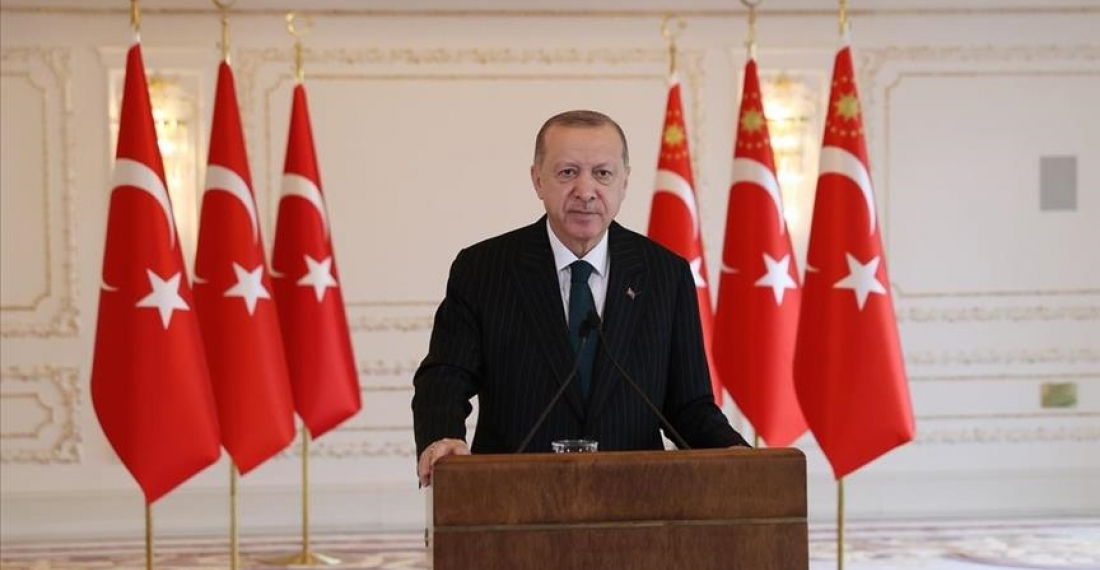Turkey's president Recep Tayip Erdogan on Saturday (26 December) proclaimed that 2021 would be a year of democratic and economic reforms in the country.
The semi official Anadolu news agency quoted the president as saying at a video address from Istanbul that "as promised, I hope 2021 will be a year of democratic and economic reforms".
"We'll present the preparations for this to the discretion of our nation and parliament as soon as possible," Erdogan added.
Meanwhile, Turkey is ready to talk, agree and work together with every country on the condition of respect for its sovereignty, rights, laws and potential, he underlined.
The president also referred to Turkey's international relations and said that Turkey does not have any problem that cannot be resolved with either the US, Europe, Russia, China or other regional countries.
source: commonspace.eu with Anadolu News Agency (Ankara)
photo: President Recip Tayip Erdogan speaking in a video message from Istanbul on 26 December 2020 (picture courtesy of Anadolu News Agency, Ankara).






